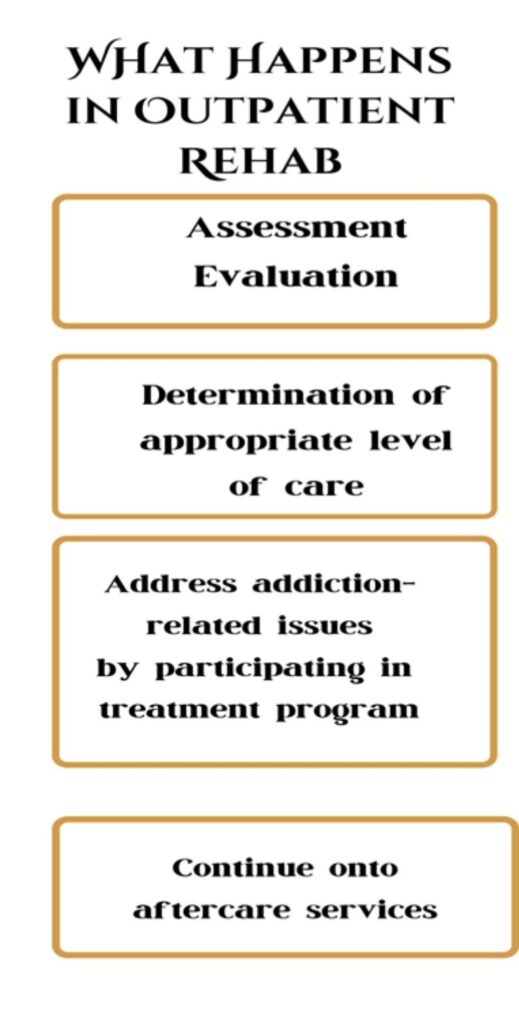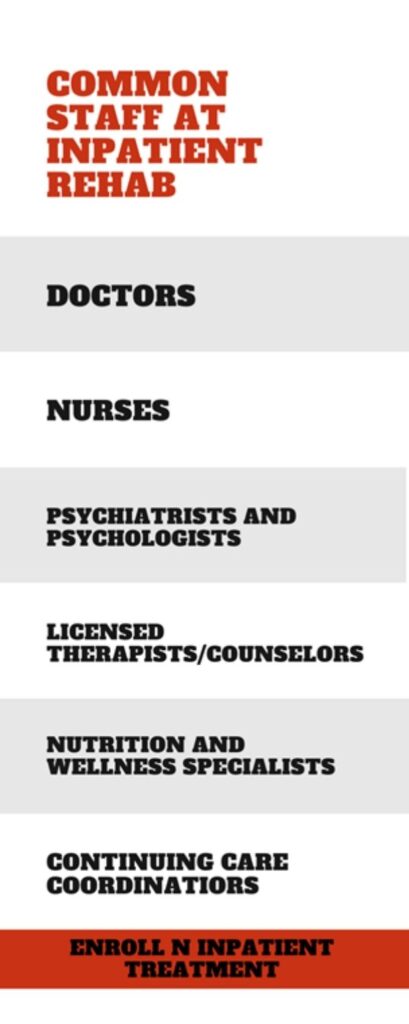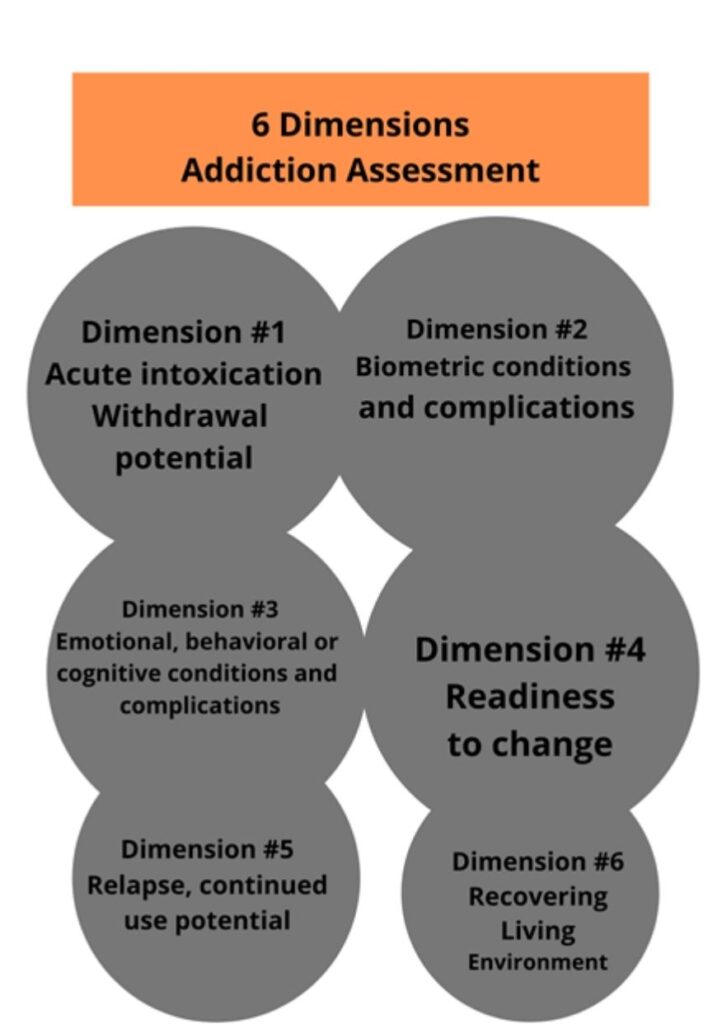
Before being able to understand how addiction treatment functions, it is a good idea to discuss a little about addiction in the first place. There are different ways that addiction can manifest in a person’s life – everything from a falling down drunk, to someone who is driving while under the influence of drugs, to those who work, full-functioning alcoholics and everything in between. No matter what type you are, an addiction is an addiction. Nobody is safe from it because it can happen to anyone.
Now, if you or someone you know do have an addiction to drugs or alcohol, the first step is admitting you need help. The next step is picking up the phone and calling a professional treatment center. Here at Midwood Addiction Treatment Center, we can help you to overcome a drug or alcohol addiction starting today.
Levels of Care within the Addiction Treatment Field
If you or your loved one have an addiction to alcohol or drugs, it is a good idea to look through the various levels of care in the addiction treatment field. Not everyone will need to go to the same treatment program. It will vary based on your individual preferences, prior treatment history, previous relapses, the severity of your addiction and some other factors, too.
The primary levels of care within the addiction treatment field are:
- Detox
- Outpatient treatment
- Intensive outpatient treatment
- Partial hospitalization
- Residential or inpatient treatment
Continue reading this guide to find out more about these levels of care. Hopefully, then, you can make the call to get into the treatment program that will work best in your case.
Each type of treatment provides people with the opportunity for sobriety, growth, improved self-confidence, self-awareness and most of all a healthier lifestyle. If you are struggling with an addiction, don’t hesitate to reach out to our team. We would be happy to assist you in finding the treatment program that will be right for you. You may even start in one program and need to move to another. That is completely normal and we will help you with these transitions as much as we can. If you have any questions about any of these treatments after you read this guide, let our team know.
Detoxification
The first step in treatment for an addiction is the detoxification process. Most people who have an addiction do experience withdrawal symptoms when they stop drinking or using drugs. Some of these withdrawal symptoms include:
- Nausea
- Vomiting
- Lightheadedness
- Dizziness
- Stomach cramps
- Diarrhea
- Chills
- Shaking
- Irregular heartbeat
- Fever
- Hallucinations
- Headaches
- Anxiety
- Sweating
- Tremors
- Disorientation
- Delirium tremens
Not everyone will experience all these withdrawal symptoms. However, most people will experience at least a few of them within the first hour to days after they stop drinking or using drugs. The purpose of this program is to help people make it through the withdrawal process.
It is important to note that some of these symptoms are severe. For instance, delirium tremens occur in rare cases. However, they are serious and should be taken as such. They generally happen in 2 to 5 days after someone took their last drink. They can be life-threatening. This is just one reason why professionals encourage people to attend a rehab detox program. The doctors and nurses on staff can watch over you and help you through any withdrawal symptoms.
Outpatient Treatment
When most people enter a rehab program for alcohol or drug treatment, they have the option of outpatient treatment. This is the least restrictive addiction treatment option. It occurs after or while someone detoxes from drugs or alcohol.
People who don’t have a severe addiction may want to choose this route, as the treatment times are flexible and they can still continue work, school and other responsibilities. If you need to fight against a mild to moderate alcohol or drug addiction, this may be the treatment you need.
Many people want to know more about how outpatient addiction treatment works. Hopefully, the information here today can give you a rundown of what happens within outpatient rehab programs.

Outpatient addiction rehab treatment is a very effective option to help people overcome alcohol and drug addictions. Clients generally only attend therapy/services for about 1 to 3 hours every week. Then, they work on their recovery plan with their sponsor and on their own.
However, if you do have a severe addiction to any of these substances, it may be best for you to pursue another route of treatment such as intensive outpatient, partial hospitalization or inpatient options.
Intensive Outpatient
Outpatient treatment is one option available to help people overcome alcohol and drug addictions. However, there are many reasons why someone might need a bit more intensive addiction treatment, even though they don’t quite need inpatient treatment. One reason is that the person already attended an inpatient treatment program, but they still need quite a bit of support and accountability. Another reason might be that the person has a moderate addiction that needs more than outpatient care, but not as much as inpatient care.
Generally, clients will attend intensive outpatient addiction treatment for about 9 hours total every week. It will usually be in 2 to 4-hour chunks.
The main components of intensive outpatient treatment include:
- Group therapy
- Learning how to socialize without alcohol or drugs
- Support/accountability
- Structure/discipline
- Individual counseling
- Medication management (if needed)
- Case management
- Introduction to support groups
- Mental health/psychiatric screening
- Vocational training
The main difference between intensive outpatient treatment and inpatient treatment is that the individual doesn’t live in the facility. Most of the time, with intensive outpatient treatment, the individual will stay in a sober living community. These communities help people to add structure to their life while staying accountable to their recovery.
Partial Hospitalization
Partial hospitalization programs or PHPS offer intensive treatment for addictions and mental health issues. However, you don’t have to stay overnight like you do with inpatient treatment programs. You will get more treatment time than you do with basic outpatient treatment.
Studies show that partial hospitalization is an effective form of treatment for addictions. There are some alcohol and drug rehab programs that offer partial hospitalization as part of their treatment options. Sometimes, these programs are available through hospitals.
The primary goal of PHP is to provide comprehensive, supportive care for people who have a substance use disorder, addiction or mental health disorder, while still allowing that person to live their life away from the treatment center.
Here at Midwood Addiction Treatment Center, we do have partial hospitalization services for those who need to overcome substance use disorders and mental health conditions. You just need to reach out to our team today to discuss your recovery needs and get enrolled.
We have various services offered in our partial hospitalization program, too, such as:
- Behavioral therapy
- Dialectal behavior therapy
- Individual therapy
- Group therapy
- Family therapy
- Support groups
- Art therapy
- Other holistic treatments
If you or someone you know has an addiction to alcohol or drugs, partial hospitalization treatments might be what you need to overcome that addiction. You can reach out to our Midwood Addiction Treatment team to find out more about PHP and whether it is right for you.
However, it should be noted once again, that if you have a severe addiction or you have tried previously to overcome the addiction but relapsed, inpatient treatment might be best for you.
Inpatient Treatment
Inpatient or residential treatment offers the highest level of rehab care for those with addictions and mental health disorders. Generally, inpatient treatment programs include a medical detox service along with an integration of mental health services, too.
Here at Midwood Addiction Treatment Center, our inpatient treatment programs begin with an assessment. We want to make sure all of our clients are getting their addiction recovery needs met. We ask questions about your medical health, substance use history, mental health issues, your family, your lifestyle, your job and other things regarding your life. From this assessment, we can then determine how to best meet your needs and help you to overcome any challenges while attending an inpatient treatment program. There are many staff members, here at Midwood Addiction Treatment Center, that you will come into contact with while staying at the inpatient program.

Who Needs Inpatient Rehab
How are you supposed to know if you need to attend an inpatient rehab program? Well, those who would benefit the most from inpatient addiction treatment are:
- People who have a high risk of experiencing alcohol or drug withdrawal
- People who have had a relapse in the past
- People who attempted recovery in a less intensive program but relapsed or didn’t make much progress
The majority of people who come to us here at Midwood Addiction Treatment Center have a co-occurring disorder – mental health condition and an addiction to drugs or alcohol. These are people who often need inpatient treatment the most.
Another factor to think about when deciding between outpatient and inpatient treatment is whether you have a good, supportive and healthy home environment. Do your family members support you going to addiction treatment? Do you have friends who won’t drink or do drugs by you? If so, then you might be alright going to an outpatient or intensive outpatient treatment program. However, if you don’t then it may be best to attend an inpatient program, so you can get around-the-clock supervision, care and support.
Many people also want to know how long they will be attending the inpatient treatment program. This can vary from person to person, however, generally, it is between 28 and 90 days. Some people do need to attend inpatient rehab for longer. The exact length of time is based on your progress, your needs in recovery and the work you do while attending the treatment program.
For some people, it may depend on what their insurance will cover, as well. Since inpatient treatment is much more expensive than other programs, some people only go if their insurance covers it. Here at Midwood Addiction Treatment Center, we take many insurance plans. If you have insurance reach out to us to discuss your coverage. If you don’t have insurance, we would still like to help you get the addiction treatment you need. You can contact our team to discuss what the next steps will be in your case.
What is the Main Difference Between Partial Hospitalization and Intensive Outpatient Programs?
The primary difference between these two treatment options is the amount of time the client spends in treatment every week. In the PHP programs, the client will usually have 5 days of treatment a week for 4 to 6 hours each of these days. With the intensive outpatient programs, clients generally attend treatment 2 to 5 days a week for about 1 to 4 hours each of these days.
Framework for Addiction Treatment Programs
Most people who struggle with addiction don’t admit it until they hit a rock bottom of sorts. However, it doesn’t have to be that way. Learning more about the framework for addictions and addiction treatment programs can help more people to get treatment before things get much worse.

When assessing addictions, our professional rehab center staff will look at 6 dimensions. Knowing more about these dimensions can, undoubtedly, help people to find the addiction treatment they need.
No matter what stage of addiction you are in, our Midwood Addiction Treatment Center team can help you set goals for your recovery – from sobriety to aftercare planning.
We understand the importance of getting support in each stage of recovery, as well, so in our care, you don’t have to feel alone.
Get Treatment for an Addiction to Drugs or Alcohol Today
Do you have an addiction to drugs or alcohol? Maybe, you know someone that has this type of addiction. If this is the case, learning more about how addiction treatment functions can help you, your loved one or your friend to get the help needed to overcome this addiction.
Here at Midwood Addiction Treatment Center, we know how important receiving support is in recovery. We also know that many people don’t get that support at home. Whether you are attending a detox, outpatient, intensive outpatient, partial hospitalization or inpatient treatment program, we are here to support you every step of the way.
Contact us today to learn more about how addiction treatment works and what it takes to get started in a treatment program.
Wow, wonderful blog format! How lengthy have you been running a blog
for? you made running a blog look easy. The total glance of your website is great,
as smartly as the content material! You can see similar
here e-commerce